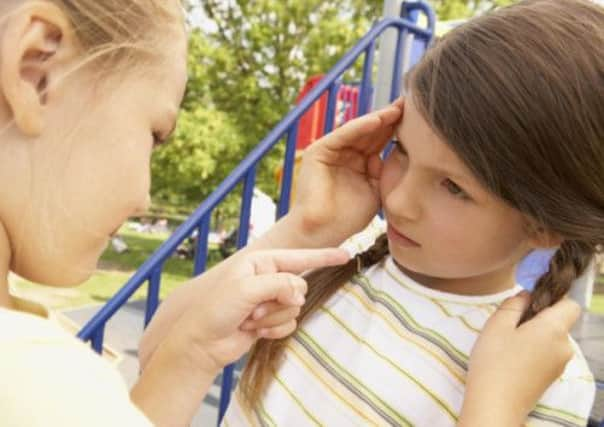Class struggle for the children who are really sick of school


Fifty years ago, GPs could pretty much count on one hand the ailments which would affect the majority of their patients over the course of any given year.
There would be a bout of flu, a round of chickenpox, a few vomiting bug cases, an outbreak of glandular fever and that was about it. These days, thanks some suspect to the rise in pharmaceutical companies a new condition – and a drug to cure it – seems to be identified every week.
Advertisement
Hide AdAdvertisement
Hide AdWhich is why, when new research suggested as many as one in five children may be school phobic it caused eyebrows to be raised among the pull your socks up brigade.
Netmums were not so easily dissuaded. The online parenting site surveyed its members and confirmed that school phobia does not only exist, but peaks between the ages of 11 to 13-year-olds.
Many children don’t like going to school – but that’s very different from having a school phobia. While every parent has faced mornings where their child presents a barrage of reasons why they should stay at home, school phobics not only fake illnesses, but can develop very real stress-related headaches and stomach aches.
The trigger, unsurprisingly, is often bullying, but psychologists also point out that stress at home, such as parental separation, may be the underlying cause of school phobia.
Advertisement
Hide AdAdvertisement
Hide Ad“School refusal is a devastating condition that blights the lives of both parents and children,” says Netmums founder Siobhan Freegard.“It’s incredibly stressful for parents to watch their children suffer and horrible for the children involved.”
Netmums found that parents believe more than a third of schools are unaware of school phobia, and indeed one in 25 parents of children with the complaint have been accused of allowing their child to truant.
“There needs to be more awareness so schools realise these are not problem children intent on truanting, but pupils who have a deep-seated emotional fear of going to school,” stresses Freegard. “Schools and parents must do all they can to work together and ensure children are helped and supported so they don’t miss vital months or years of schooling.”
Professor Julian Elliott, an educational psychologist at Durham University, says that while parents often don’t know their child is truanting, they’re usually aware if he/she has school phobia.
Advertisement
Hide AdAdvertisement
Hide Ad“Kids hide truancy, but a school phobic is unable to conceal it,” he explains. “The school phobic usually wants to go to school but is unable to – they’re unhappy about the circumstances and are psychologically unable to attend.
“There are a lot of other kids who just don’t want to be at school, but they don’t have a psychological reaction, with high levels of anxiety and associated somatic complaints.”
Parents may not always realise the problem is school phobia, he says, as it’s sometimes presented as a physical condition such as stomach ache or a headache.
Elliott, co-author of the book Children In Difficulty, which addresses school phobia among other childhood problems, stresses the need for tough love.
Advertisement
Hide AdAdvertisement
Hide Ad“You’re generally better getting them into school regularly,” he says. “As soon as they’re home, in that safe, womb-like environment, getting them back into school is a lot harder. Their anxiety melts away, and it’s a massive reinforcer for their behaviour.
“If a school-phobic child says they have stomach ache, for example, their discomfort is genuine. It originates in the psyche, but the result is a bodily, or somatic, problem which is real. They really do have stomach ache, but it’s stress-related. Parents need to understand that and not belittle it. In the vast majority of cases that I work with, there’s something in the child’s home life which has unsettled them,” he explains.
“This might be when parents are splitting up – the child feels powerless when his mum and dad are arguing, and if he stops going to school, the parents will suddenly have to be united to try to get him back to school.”
Elliott stresses that it’s vital for schools to understand there are some children who aren’t just wilfully absent from school.
Advertisement
Hide AdAdvertisement
Hide AdHe says the best work closely with psychologists and, for example, if they predict there’s likely to be a scene when a child arrives at school, arrangements will be made for them to arrive early.
He adds: “It’s not just that they don’t want to be there – for a very small proportion of kids this is a very serious problem and we have to do everything we can to help them.”